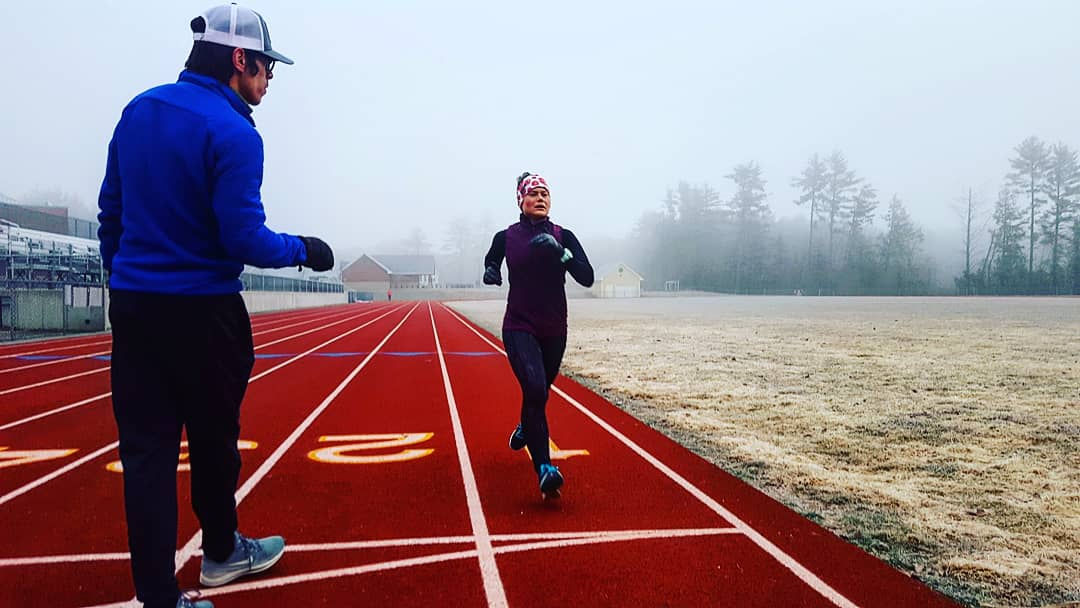Failure can be a path to success
- Thomas Paquette

- Sep 19, 2018
- 3 min read
Updated: Feb 12, 2019
How do you measure success? Furthermore, how do you measure success in running?
About two years ago, I was the “hometown favorite” to win the 39th annual Clarence DeMar Marathon. I was poised and ready to take on 26.2 miles for the first time, on familiar roads.

Unbeknownst to me, those same roads would swallow me up and spit me right back out. I led for 24 miles of the race, until I succumbed to cramps in my hamstrings. I experienced the worst pain I have ever felt, almost as if someone had stuck electrodes on my backside and turned the voltage to high. As I peeled off to the side of the road, grabbing my hamstrings, my goal was slowly fading away with every wince of agony. I walked the last 2 miles of the marathon. Walking in a race was something I had never done before.
In the moment, I thought I had failed. I thought I had failed reaching my goal. I had failed my friends, my family, but most of all, myself. How I imagined the end of the race, what I had envisioned during my runs prior, was the complete opposite of what happened.
However, in hindsight, that day was one of the most pivotal days in my running career.
I never knew how humbling a race can be, especially if it doesn’t go according to plan. It can transform you, mold you, and make you a better runner. I finished in 10th place, with a time of three hours, a half-hour off my goal. With my head in my hands, frustrated beyond belief, I did not give up on my goal. Instead of finding excuses, I let it fuel my fire. And let me tell you, two years later, my fire is still burning.
Goals are sometimes not reached the first time. It is never a sure thing. If you don’t reach your goals on your first try, don’t let that defeat you. Turn it into a positive, as much as possible. I attempted my second marathon six months later, only to slide backwards, further from my goal. I ran slower. Sometimes you have to take a few steps back to go several steps forward.
As I enter myself into another arena — the Chicago Marathon in October — I am looking back on my first marathon experience, and I don’t see it as a failure, but a success. It turned me into a stronger runner mentally. I can withstand more pain than I ever thought possible. It made me realize that achieving my goal might not happen the second time or the third time — or possibly even the fourth time. In my first Boston Marathon, in 2017, the same thing happened to me in extremely hot weather; I finished seven minutes slower than at the DeMar.
Over the past two years, I have whittled my time down by almost 20 minutes. Faced with challenging weather in Philadelphia last fall, 40 mph wind gusts did not stop me. Weather conditions in this year’s Boston Marathon were among the worst in the race’s storied history — a cold, driving rain and biting headwind. I still managed to set a personal record.
I am on my sixth try, and even now, there’s no guarantee. It is not a given that there will be perfect weather, or that I will feel 100 percent. In what I call my “marathon journey,” I have come to accept there is no guarantee in anything, and all I have control over is the effort I put forth on any given day. There is an ebb and flow to running, just like in life. You must be able to handle the good and the bad. You must have the bad races, or the bad workouts, to distinguish them from the good. You must fail more times than one to realize a triumph.
I truly believe that if you can accept failure as a way to success, then you are closer to your goal than you might think.



Comments